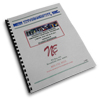24-hour Hazardous Materials Technician
our E-Newsletter

Jump To Section
Regulation |
Open Enrollment Seminars |
Other Course Options |
Individual Products
Open Enrollment Seminars
This class is not scheduled for any upcoming seminars. It is available for On-Site
Training; call or E-mail us to schedule a seminar.
Optionally, you can purchase the On-Site Training Seminar Kit below.
Course Regulation
29 CFR 1910.120:- (q)(6): Training. Training shall be based on the duties and function to be performed by each responder of an emergency response organization. The skill and knowledge levels required for all new responders, those hired after the effective date of this standard, shall be conveyed to them through training before they are permitted to take part in actual emergency operations on an incident. Employees who participate, or are expected to participate, in emergency response, shall be given training in accordance with the following paragraphs:
-
(q)(6)(iii):
Hazardous materials technician. Hazardous materials technicians are individuals who
respond to releases or potential releases for the purpose of stopping the release.
They assume a more aggressive role than a first responder at the operations level
in that they will approach the point of release in order to plug, patch or otherwise
stop the release of a hazardous substance. Hazardous
materials technicians shall have received at least 24 hours of training equal to
the first responder operations level and in addition have competency in the
following areas and the employer shall so certify.:
- Know how to implement the employer’s emergency response plan;
- Know the classification, identification and verification of known and unknown materials by using field survey instruments and equipment;
- Be able to function within an assigned role in the Incident Command System;
- Know how to select and use proper specialized chemical personal protective equipment provided to the hazardous materials technician;
- Understand hazard and risk assessment techniques;
- Be able to perform advance control, containment, and/or confinement operations within the capabilities of the resources and personal protective equipment available with the unit;
- Understand and implement decontamination procedures;
- Understand termination procedures;
- Understand basic chemical and toxicological terminology and behavior.
- It is also a prerequisite to the 8-Hour On Scene Incident Commander Program.
The Following Topics are Covered by this Course
- History Of The Law
- Regulatory Overview
- Poisons
- Chemical Exposure
- Hazard Assessment
- Fires And Explosions
- Reference Material
- Oxidizers
- Oxygen Deficiency
- Ionizing Radiation
- Potential Site Hazards
- Heat Stress
- Cold Exposure
- Noise Exposure
- OSHA 1910.146
- Planning And Organizing
- ERGB Exercise
- Training
- Medical Surveillance
- Site Characterization
- Air Monitoring
- Self-Contained Breathing Apparatus
- Supplies-Air Respirators
- Air-Purifying Respirators
- Fit Test Procedures
- Chemical Protective Clothing
- Site Control
- Decontamination Techniques
- Drums & Containers
- Site Emergencies
- Haz. Material Terminology
- Review And Final Test
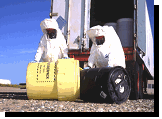
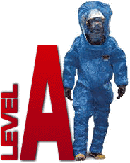
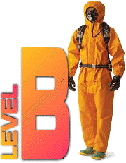
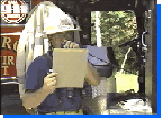
Other Course Options
On-Site Training
New Environment, Inc. offers On-Site Training for this course, call or E-mail us to schedule this course.
Individual Products
Instructor Materials
24-Hour Hazardous Materials Technician - Lesson Plan
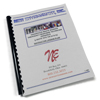
The Following Topics are Covered in this Course
- History Of The Law
- Regulatory Overview
- Poisons
- Chemical Exposure
- Hazard Assessment
- Fires And Explosions
- Reference Material
- Oxidizers
- Oxygen Deficiency
- Ionizing Radiation
- Potential Site Hazards
- Heat Stress
- Cold Exposure
- Noise Exposure
- OSHA 1910.146
- Planning And Organizing
- ERGB Exercise
- Training
- Medical Surveillance
- Site Characterization
- Air Monitoring
- Self-Contained Breathing Apparatus
- Supplies-Air Respirators
- Air-Purifying Respirators
- Fit Test Procedures
- Chemical Protective Clothing
- Site Control
- Decontamination Techniques
- Drums & Containers
- Site Emergencies
- Haz. Material Terminology
- Review And Final Test
Student Materials
DOT Emergency Response Guidebook
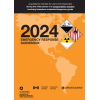
This Guidebook is primarily a guide to aid first responders in quickly identifying the specific or generic hazards of the material(s) involved in the incident, and protecting themselves and the general public during the initial response phase of the incident.
The Emergency Response Guidebook is updated every three to four years to accommodate new products and technology.
Use this DOT-issued guidebook to help you satisfy DOT's requirement that Hazmat shipments be accompanied by emergency response information (49 CFR Section 172.600).
View the 2024 Emergency Response Guidebook Summary of Changes from 2020.
Published by the U.S. Department of Transportation. 4"x5.25" Pocket Version
NIOSH Pocket Guide To Chemical Hazards
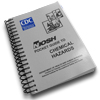
The NIOSH Pocket Guide to Chemical Hazards presents key information and data in abbreviated or tabular form for chemicals or substance groupings (e.g. cyanides, fluorides, manganese compounds) commonly found in the work environment. With this handy book you'll find information on recommended exposure limits, permissible exposure limits, chemical and physical properties, health hazards and personal protection for 677 chemicals regulated at the federal level.
- Most Current Printing/Revision Date.
- New layout for the Chemical Listing section, each chemical arranged in its own table.
- Expanded Chemical, Synonym and Trade Name Index.
- Conversion factors, Chemical Abstracts Service Registry Number and The Registry of Toxic Effects of Chemical Substances.
- Updated DOT ID and Guide Numbers to reflect changes made by DOT in the 2016 Emergency Response Guidebook.
- NIOSH Recommended Exposure Limits (NIOSH RELs).
- Occupational Safety and Health Administration Permissible Exposure Limits (OSHA PELs).
- NIOSH Immediate Dangerous to Life and Health values (NIOSH IDLHs).
- A physical description of the agent with chemical and physical properties.
- Measurement methods.
- Personal Protection and Sanitation Recommendations.
- Particulate respirator recommendations revised to include Part 84.
- Information on Health Hazards including: Route, Symptoms, First Aid and Target Organ information.
- Revised Appendix E to include OSHA respirator requirements for hazardous substances identified in the preamble to the OSHA Respiratory Protection Standard (29 CFR 1910.134).

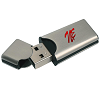 Fully editable PowerPoint presentation for 24-Hour Hazardous Materials Technician
Fully editable PowerPoint presentation for 24-Hour Hazardous Materials Technician
